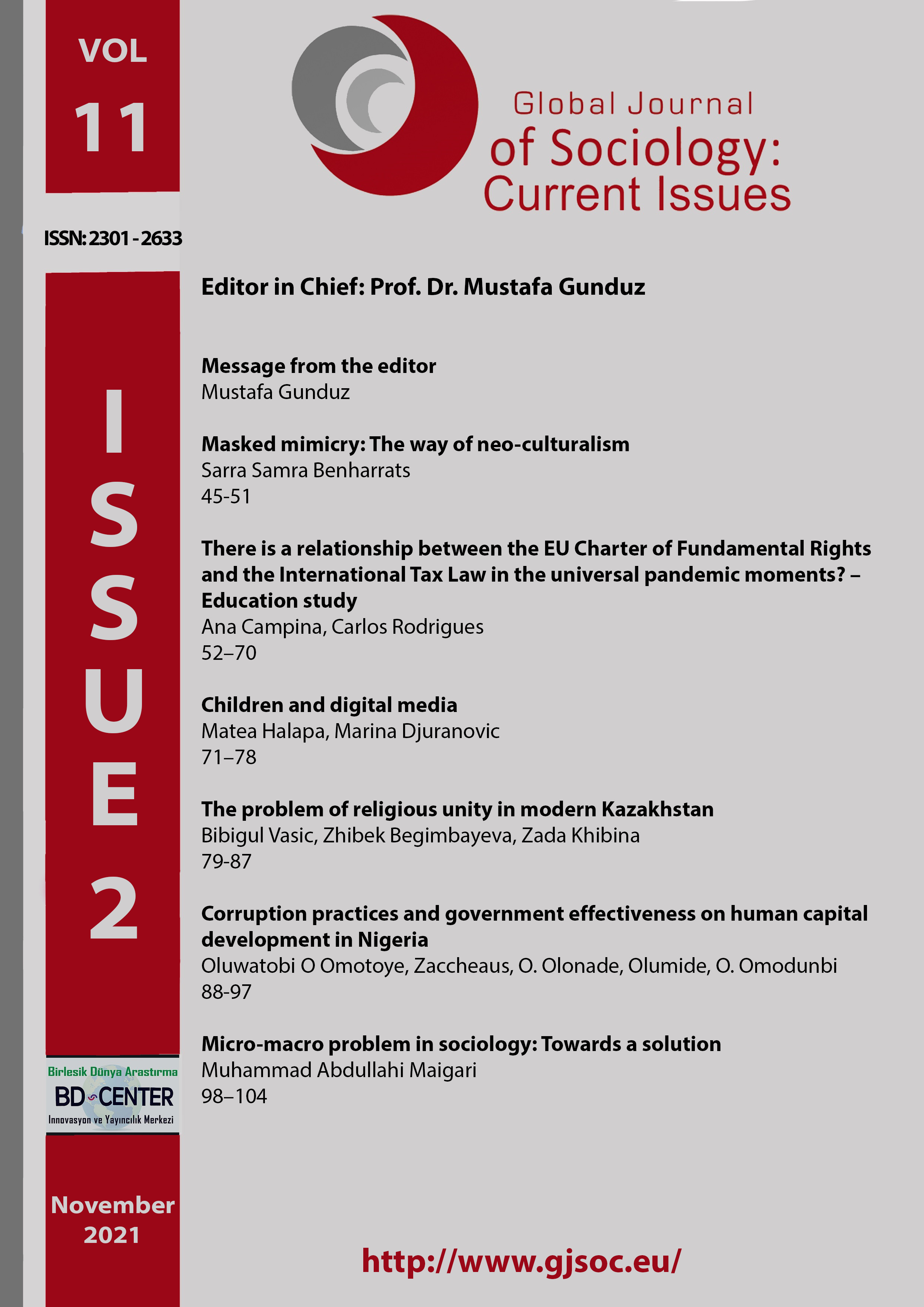Micro-macro problem in sociology: Towards a solution
Main Article Content
Abstract
The researcher reviewed the works of some major micro-theorists and deduced solutions to the problem. The researcher deduced one of the solutions from the works of Randall Collins which is named aggregation model. Similarly, another model was deduced from the works of James Coleman called coordination model. These models show a movement from micro-observations made or data collected to the macro level where generalisations are made or conclusions are drawn. The two models have depicted a scale of transition from micro (individual members of the society) to macro-level which is a large-scale structure of the society. The paper concludes that either of the two models presented above can solve the micro-macro problem in sociology and social theory in general.
Keywords: Aggregation model, coordination model, micro, macro.
Downloads
Article Details

This work is licensed under a Creative Commons Attribution 4.0 International License.
Authors who publish with this journal agree to the following terms:- Authors retain copyright and grant the journal right of first publication with the work simultaneously licensed under a Creative Commons Attribution License that allows others to share the work with an acknowledgement of the work's authorship and initial publication in this journal.
- Authors are able to enter into separate, additional contractual arrangements for the non-exclusive distribution of the journal's published version of the work (e.g., post it to an institutional repository or publish it in a book), with an acknowledgement of its initial publication in this journal.
- Authors are permitted and encouraged to post their work online (e.g., in institutional repositories or on their website) prior to and during the submission process, as it can lead to productive exchanges, as well as earlier and greater citation of published work (See The Effect of Open Access).
